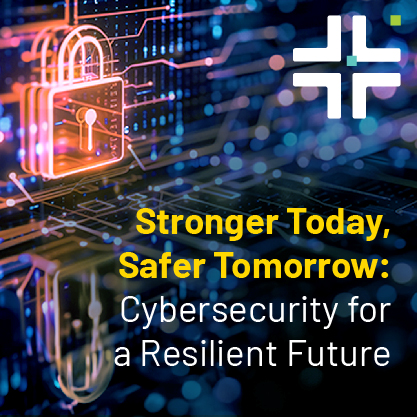From enhancing operational efficiency to automating complex processes, AI promises a new era of productivity and innovation for manufacturers. However, with these advancements come significant cybersecurity challenges that must be addressed to safeguard operations – and reputations.
Opportunities and Risks
AI in advanced manufacturing offers numerous benefits. For instance, generative AI can streamline production by uploading detailed plans directly to the shop floor, ensuring materials and components are efficiently managed and utilized. This automation, evident in projects like the Tesla Cybertruck or aerospace components, allows for over 90% automation in some cases, drastically reducing human error and increasing production speed.
However, this increased reliance on AI introduces vulnerabilities. AI systems, if not properly secured, can become targets for cyberattacks. Injecting flaws into the AI processes can compromise the entire manufacturing line, leading to defective products and significant financial losses. The integration of AI also means that any cyber breach could potentially manipulate the production process itself – posing a severe threat to the integrity of the manufactured goods. To mitigate these risks, manufacturers must adopt robust cybersecurity measures tailored to their needs. Here are some critical strategies:
- General IT Awareness and Training: Educating your teams about potential cyber threats and the importance of defending against them is vital. Many cyber breaches go undetected for over 200 days, giving attackers ample time to inflict significant damage. Regular training can help staff recognize and respond to threats promptly.
- AI Governance and Data Management: Establishing transparent governance for AI and data management is critical. Tagging data to indicate its relevance and security level helps AI systems process information correctly and securely. This approach reduces the risk of AI making decisions based on compromised or irrelevant data.
- Quality Control and Corrections: Implementing rigorous quality control measures ensures that any errors introduced by AI can be swiftly identified and corrected. This process is vital for maintaining the integrity and reputation of the manufacturing output.
Mid-size organizations of all types often do not have the level of cyber protection they need, and are some of the most susceptible to cyber events, due to the perceived high cost of security. However, studies have shown that it costs six (6) times more (on average) to remediate controls after a cyber event than it does to address security up front. Therefore, as organizations consider the use of transformative technology such as AI, it is critical that they address security, data protection and governance as part of the journey. The cost of protection does not have to be exorbitant. Organizations should engage consultants that have not only a deep understanding of the subject, but experience providing solutions that are right sized to fit the client's needs.
- Edward Keck Jr., MBA, CISSP, Partner. Market Leader, Cyber and Information Security Services, Withum
Laying the Foundation for Secure Integration
The foundation for secure AI integration lies in proactive planning and continuous improvement. Here are some steps to consider:
- Assess and Update IT Infrastructure: Ensure your IT infrastructure can securely support advanced AI applications. This may involve upgrading hardware, enhancing network security and implementing advanced monitoring tools.
- Develop a Cybersecurity Roadmap: Create a detailed cybersecurity roadmap that outlines potential threats, mitigation strategies and response plans. Review and update this roadmap regularly to address emerging threats and technological advancements.
- Foster a Culture of Security and Integrity: Emphasize the importance of security and integrity over mere compliance. Encourage employees to go beyond checking off boxes and adopt a proactive cybersecurity approach.
[Regardless of industry sector] it’s important to have an understanding of your environment and your vulnerabilities to protect your enterprise, especially if you’re dealing in intellectual property, chemical formulation, or HIPAA–because of the intellectual property, those are [the businesses] at highest risk. Small to medium-sized [businesses] are the most vulnerable because they don’t really have the infrastructure in place to be cyber secure. They don’t have the time or resources to ensure proper cyber hygiene, so they’re most vulnerable–and there are a lot of them in New Jersey. There are a lot of manufacturers that are involved in the life science, chemical manufacturing, [and] department of defense spaces–upwards of 3,000.
- Dave Visalli, Senior Account Manager and Cybersecurity Specialist, NJMEP
Balancing Trust and Control
One of the fundamental questions manufacturers face is, “How much trust can we place in AI?” While AI can significantly enhance efficiency and decision-making, it is essential to maintain a balance between confidence and control. Manufacturers should implement AI with human oversight, ensuring that AI systems operate under the supervision of experienced personnel who can intervene when necessary. This oversight helps prevent AI from making erroneous decisions that could impact production quality.
In addition, regularly auditing your AI systems is vital to ensure they are accurate and reliable. Audits help identify potential flaws and ensure that the AI operates as intended. Understanding AI and new technologies and their implications allows manufacturers to continuously adapt and enhance their security measures.
For mid-sized manufacturers, integrating AI into advanced manufacturing processes presents both remarkable opportunities and significant cybersecurity challenges. By adopting a strategic approach that emphasizes robust cybersecurity practices, thorough training and continuous improvement, manufacturers can harness AI while safeguarding their operations against cyber threats. It’s not just about protecting the bottom line – but also about maintaining trust and reputation in an increasingly digital world.
Authors: Edward Keck, Jr., Partner and Market Leader, Cyber and Information Security Services | [email protected]; Jason Spezzano, Executive Cybersecurity Advisor | [email protected]; and Dave Visalli, NJMEP
Contact Us
For more information on this topic, please contact a member of Withum’s Cyber and Information Security Services Team.







